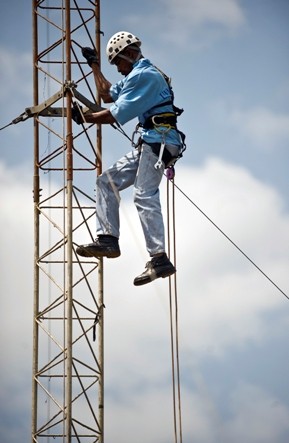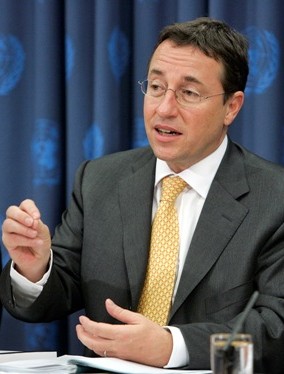|
Kenya | Africa Politics | Economy - Development | Environment - Nature Africa advised against coal power
Achim Steiner, leader of the UN's Kenya-based environmental agency UNEP, at a speech in Nairobi today warned governments of Kenya and other African countries not to invest in coal power plants.
A new avenue of possibilities just was about to open, the UNEP leader explained; the international carbon market. In Kenya, the carbon trade already had financed new power supply, he said. It had caused the geothermal taking off in Naivasha, and it was one of the main reasons why Africa had "a big stake" in the UN-led climate change negotiations. Only a few weeks ago, international carbon market support was also announced for the 300 MW wind power project under development in Turkana, set to become Africa's largest wind farm. African governments could also "play a key role in creating the right kinds of conditions that will attract carbon market investors: not subsidies, but smart market mechanisms," Mr Steiner said. Experiences on that were currently made in Kenya, he noted. This willingness to invest in African renewable energy through the carbon trade is confirmed by researchers. John Kilani, Director of a UN-supported Sustainable Development Mechanisms programme, notes "there is a growing number of projects in Africa and a growing number of countries hosting projects. What is more, some project developers are even prepared to pay a premium for offset credits originating from Africa, no doubt because they are confident in the long-term growth prospects" for renewable energy on the continent. "Investors in compliance and voluntary markets alike are seriously interested in good quality African emissions reduction projects, to balance their portfolios and meet their climate change strategies," agrees Henry Derwent, CEO of the Nairobi-based International Emissions Trading Association. By staff writer © afrol News - Create an e-mail alert for Kenya news - Create an e-mail alert for Africa news - Create an e-mail alert for Politics news - Create an e-mail alert for Economy - Development news - Create an e-mail alert for Environment - Nature news
On the Afrol News front page now
|
front page
| news
| countries
| archive
| currencies
| news alerts login
| about afrol News
| contact
| advertise
| español
©
afrol News.
Reproducing or buying afrol News' articles.
You can contact us at mail@afrol.com









